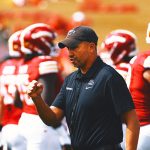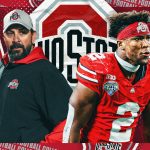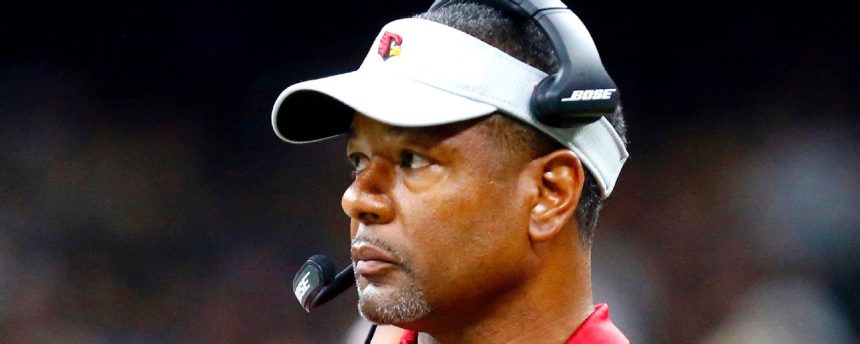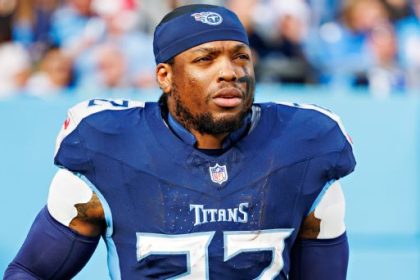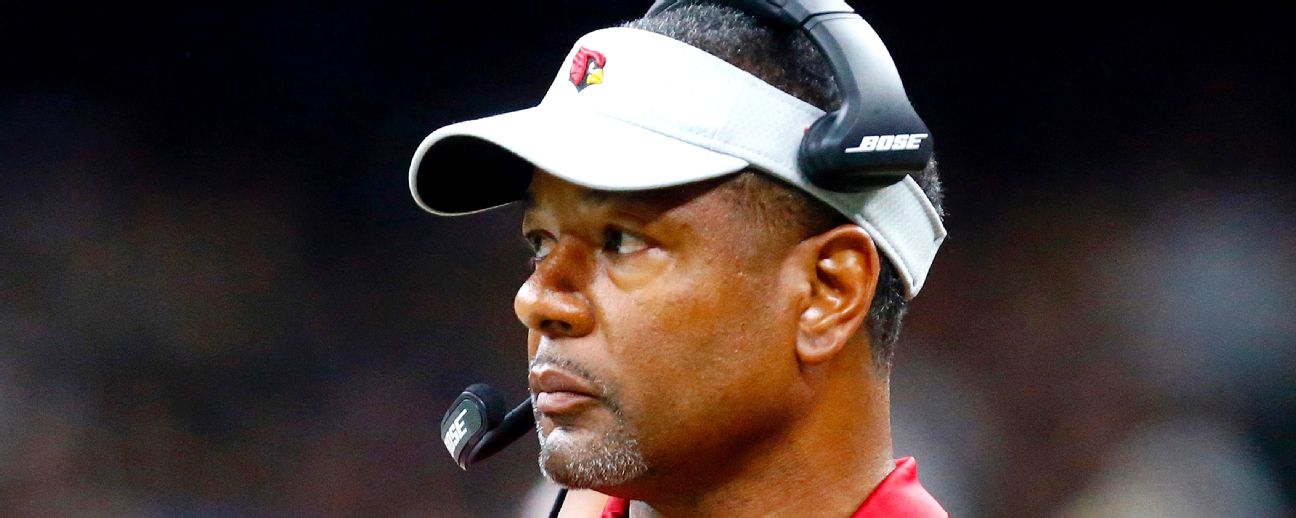
Former Arizona Cardinals head coach Steve Wilks testified that a team executive gave him a burner phone to communicate with former general manager Steve Keim under orders from Keim and team owner Michael Bidwill during Keim’s suspension, according to a deposition transcript obtained by ESPN.
Bidwill and other team executives communicated with Keim throughout his suspension for drunk driving, including while the Cardinals negotiated a three-year, $39 million contract extension with running back David Johnson, Wilks said. The NFL said at the time it would not impose additional punishment against Keim after the team suspended him.
“It was a directive from Keim as well as Bidwill,” Wilks said in the deposition. “They both knew.”
Wilks, now the defensive coordinator for the San Francisco 49ers, testified in California on Friday via videoconference as part of the ongoing arbitration complaint filed by former Cardinals vice president of personnel Terry McDonough against Bidwill and the team. McDonough’s complaint alleges gross misconduct by Bidwill, including discriminatory and racist treatment of employees in addition to the use of burner phones.
Bidwill and the Cardinals have previously denied the allegations, calling them “outlandish.”
In response to questions posed by McDonough’s attorney, Wilks provided new details about the use of burner phones, alleged incidents he witnessed between McDonough and Bidwill, and his overall coaching experience.
Cardinals attorneys later complained to NFL-appointed arbitrator Jeffrey Mishkin that Wilks’ attorney did not allow cross-examination during the deposition, according to correspondence obtained by ESPN.
“As much as we would like to share the truth of what transpired, the confidentiality order in place prohibits us from doing so,” the Cardinals told ESPN in a statement. Because Wilks has not yet been cross-examined by Cardinals attorneys, the deposition has not been admitted into the record, according to identical statements from both a team spokesperson and McDonough’s attorney. Wilks’ attorney and an NFL spokesperson declined comment.
According to the correspondence reviewed by ESPN, Cardinals attorneys previously asked Mishkin to destroy the videotape and transcript of Wilks’ testimony. Mishkin ruled Monday to keep the material, according to two sources with knowledge of the arbitration proceedings.
Wilks, who coached the team for less than 12 months during a 3-13 season, testified that league officials came to Arizona after Keim was arrested for extreme DUI on July 4, 2018, in Chandler.
The NFL announced it would not impose additional punishment against Keim after the team said July 17 it was suspending Keim for five weeks and fining him $200,000, and promised that the general manager would be barred from team facilities and prohibited from having contact with the team.
Wilks testified that Bidwill initially ordered Wilks and others to have “no communication” with Keim following his guilty plea and suspension.
But Wilks said former Cardinals vice president of football administration Mike Disner gave him a burner phone sometime between July 18 and July 20. Wilks said Disner told him that the two of them, along with Keim, McDonough and Matt Caracciolo, the team’s vice president of football operations and facilities, received burner phones. He said Disner showed him how his phone had been preloaded with “everybody’s initials” and phone numbers. Bidwill himself used a burner phone to communicate with Keim, who had multiple burner phones, according to Wilks.
“With me being a first-year head coach, I felt uncomfortable from the beginning that I worked this hard to get to this plateau and this opportunity, and then I was presented with this situation with being unethical,” Wilks testified.
Keim and Wilks had one text exchange, when Keim asked how things were going at practice, according to Wilks’ testimony. “That was the only time I reached out to Mr. Keim,” Wilks said.
But Wilks testified that Keim and Disner communicated during Keim’s suspension to solidify a new deal with Johnson. The Cardinals announced Johnson’s contract on Sept. 8, 2018, less than three weeks after Keim returned from his suspension.
Keim left the Cardinals in December 2022 for health-related reasons. Disner left the Cardinals in January 2019 and is currently the chief operating officer of the Detroit Lions. A Lions spokesperson did not respond to ESPN’s request for comment.
Wilks said he was uncomfortable with the burner phones, but as a first-year Black coach, he did not feel comfortable going to Bidwill with his concerns and instead asked McDonough to intervene on his behalf.
Wilks testified that he called McDonough into his office on July 23, 2018, six days after Keim’s suspension, to discuss his discomfort with the phones.
Wilks said he witnessed a “heated conversation” between Bidwill and McDonough later that same day. “I don’t know exactly what was said,” Wilks said. “I was walking off the practice field, might have been 15, 20 yards away. And I just heard Michael [Bidwill] berating [McDonough], so I stopped and looked.” He said McDonough did not yell at Bidwill. Bidwill, however, “was definitely irate.”
McDonough later told Wilks that the argument on the field had been about Wilks’ and McDonough’s concerns about the phones, according to Wilks’ testimony.
Before Keim’s suspension, Wilks said he felt like he had a good relationship with Bidwill, but Bidwill’s “demeanor towards me changed” after the McDonough incident on the field. The owner became “less communicative, very nonchalant,” according to Wilks.
In an April 2023 news release following McDonough’s arbitration complaint, the Cardinals stated that “Mr. Bidwill took swift action” when he learned of the burner phones and “directed the phones be retrieved and communications stopped.”
But Wilks said in his deposition that, “No one retrieved the burner phones until Keim came back [from his suspension], so it wasn’t swift.” Wilks said Disner collected Wilks’ burner phone after Keim “was back in the building.”
Wilks also testified that he never witnessed McDonough being “combative towards colleagues in leadership,” being willfully insubordinate, or having “friction with his colleagues,” all claims previously made by the Cardinals following McDonough’s complaint.
“I felt it was totally false from my experience and relationship being around Terry,” he said.
Asked if he felt that Bidwill “bullied, belittled, and criticized” McDonough in a personnel meeting following the on-field incident, as alleged in the arbitration complaint, Wilks replied, “Yes.”
Wilks said Bidwill had also berated him multiple times, including a postgame incident that occurred in front of Wilks’ 9-year-old son. He was driving home with his son after a game and called Bidwill, he said. “As soon as he picked up, it was just cuss words and how embarrassed he was about the game and can’t really, you know, bring friends or take anybody in the box,” Wilks said, adding that his son later asked him, “Daddy, why is that guy talking to you like that?”
McDonough has accused Bidwill of chastising him after he introduced three Black players to the owner during a tryout, telling McDonough, “Don’t ever do that again.” Wilks said he witnessed the interaction and heard Bidwill telling McDonough, “Don’t ever do that again,” but added, “I didn’t know exactly what it was pertaining to.”
Wilks also said a scout who is Black told him that he had been berated by Bidwill for parking in the owner’s spot, an allegation McDonough previously made in his arbitration complaint.
Bidwill sits on the NFL’s Diversity, Equity & Inclusion Committee and Social Justice Working Group. Wilks is a co-plaintiff in former Dolphins coach Brian Flores’s lawsuit against the league and several other teams, including the Cardinals, on allegations of racial discrimination in hiring. Plaintiffs attorneys in that case have called Wilks a “bridge coach” who was “not given any meaningful chance to succeed” in Arizona.
McDonough is a son of Boston Globe reporter Will McDonough and brother of ESPN broadcaster Sean McDonough.

